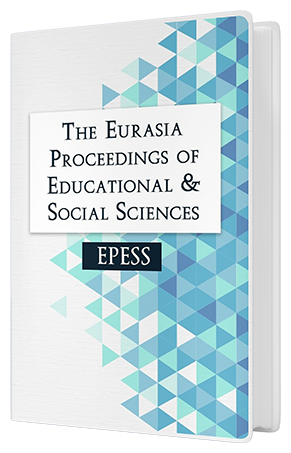Self-Reflection on the Meaningfulness of Vocational Students' Lives and Their Expectations from the Future in the Context of Demanded Quality
DOI:
https://doi.org/10.55549/epess.1413302Keywords:
Vocational education students, Life expectations, Teaching methods, Quality of educationAbstract
Vocational education has a special and irreplaceable place in the educational system of each country. On its quality depends continuous transition of graduates into the world of labour. The article analyses the research, organized for students of secondary vocational schools. The ambition of the research was to find a mutual intersection of two levels of life of young people - students of secondary vocational schools. The first level examines how young people evaluate the meaning of their lives, how they perceive their future, the goals of life and its direction through the scale of subjective attitudes The second level analyses the students' opinion of their readiness for the labour market, as vocational training naturally reflects on the world of labour and consistently cooperates with it. Students are regularly confronted with the real world of labour during vocational education. What role do teachers play in this confrontation? Is the measure of professionalism, sensitivity and promptness of teachers a sufficient guarantee of quality transition of vocational education graduates to the world of labour? Or, are the students exposed to media pressure, information and communication technologies and social networks in which teachers do not have a clearly defined positive role? How do the students themselves evaluate their level of preparedness or qualifications for labour performance after their studies? The real quality of vocational education only the future will check. However, the analysis of contemporary opinions of students can be a significantly positive stimulus for the future.Downloads
Published
Issue
Section
License
Copyright (c) 2023 The Eurasia Proceedings of Educational and Social Sciences

This work is licensed under a Creative Commons Attribution-NonCommercial-ShareAlike 4.0 International License.
The articles may be used for research, teaching, and private study purposes. Any substantial or systematic reproduction, redistribution, reselling, loan, sub-licensing, systematic supply, or distribution in any form to anyone is expressly forbidden. Authors alone are responsible for the contents of their articles. The journal owns the copyright of the articles. The publisher shall not be liable for any loss, actions, claims, proceedings, demand, or costs or damages whatsoever or howsoever caused arising directly or indirectly in connection with or arising out of the use of the research material. All authors are requested to disclose any actual or potential conflict of interest including any financial, personal or other relationships with other people or organizations regarding the submitted work.




